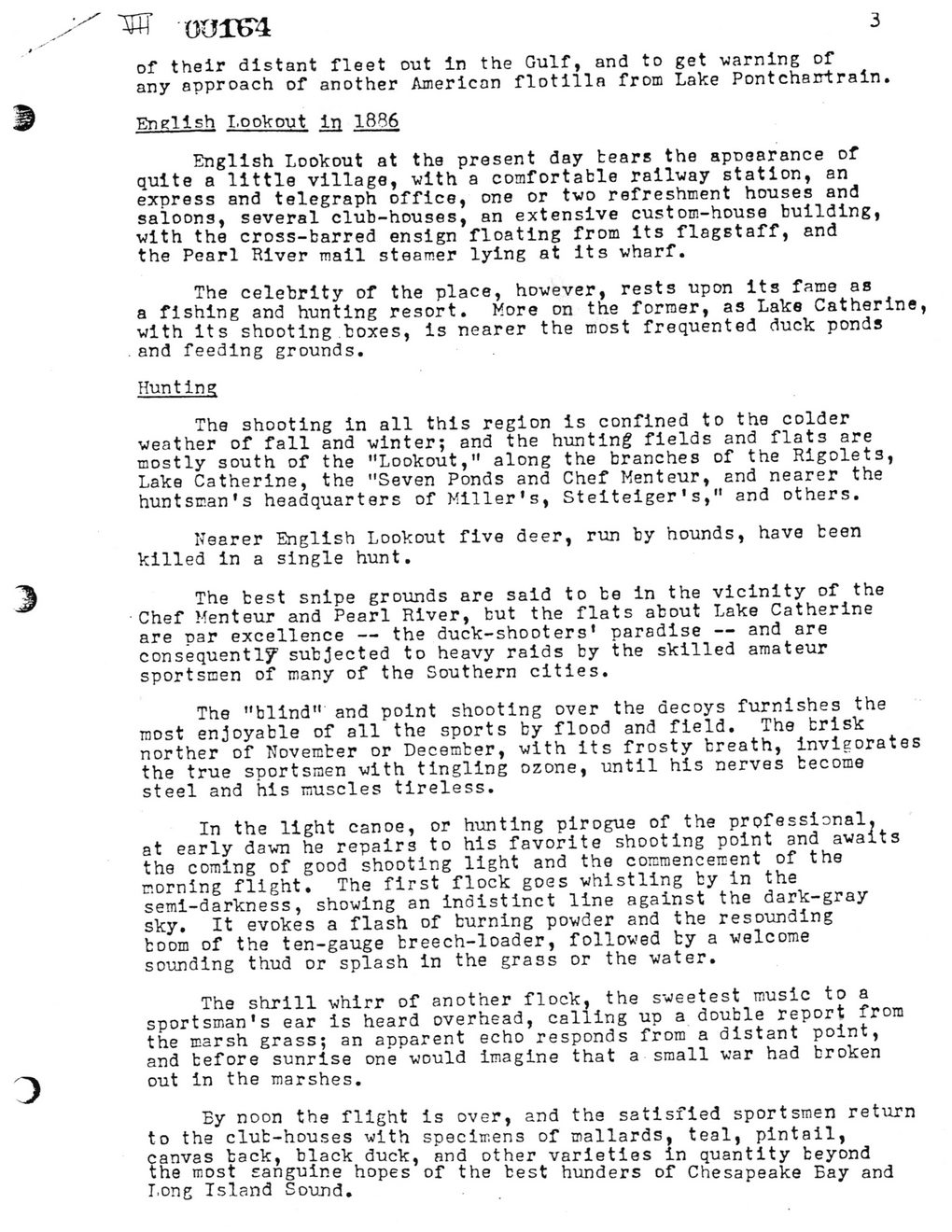This text was obtained via automated optical character recognition.
It has not been edited and may therefore contain several errors.
00164 3 of their distant fleet out in the Gulf, and to get warning of any approach of another American flotilla from Lake Pontcharrtrain. English I.ookout in 1866 English Lookout at the present day tears the apnearance of quite a little village, with a comfortable railway station, an express and telegraph office, one or two refreshment houses and saloons, several club-houses, an extensive custom-house building, with the cross-barred ensign floating from its flagstaff, and the Pearl River mail steamer lying at its wharf. The celebrity of the place, however, rests upon its fame as a fishing and hunting resort. More on the former, as Lake Catherine, with its shooting boxes, is nearer the most frequented duck ponds and feeding grounds. Hunting The shooting in all this region is confined to the colder weather of fall and winter; and the hunting fields and flats are mostly south of the "Lookout," along the branches of the Rigolets, Lake Catherine, the "Seven Ponds and Chef Menteur, and nearer the huntsman's headquarters of Miller's, Steiteiger1s," and others. Nearer English Lookout five deer, run by hounds, have teen killed in a single hunt. The best snipe grounds are said to te in the vicinity of the Chef Menteur and Pearl River, tut the flats about Lake Catherine are par excellence — the duck-shooters' paradise — and are consequently subjected to heavy raids by the skilled amateur sportsmen of many of the Southern cities. The "blind" and point shooting over the decoys furnishes the most enjoyable of all the sports by flood and field. The brisk norther of November or December, with its frosty breath, invigorates the true sportsmen with tingling ozone, until his nerves become steel and his muscles tireless. In the light canoe, or hunting pirogue of the professional, at early dawn he repairs to his favorite shooting point and awaits the coming of good shooting light and the commencement of the morning flight. The first flock goes whistling by in the semi-darkness, showing an indistinct line against the dark-gray sky. It evokes a flash of burning powder and the resounding boom of the ten-gauge breech-loader, followed by a welcome sounding thud or splash in the grass or the water. The shrill whirr of another flock, the sweetest music to a sportsman's ear is heard overhead, calling up a double report from the marsh grass; an apparent echo responds from a distant point, and before sunrise one would imagine that a small war had troken out in the marshes. Ey noon the flight is over, and the satisfied sportsmen return to the clut-houses with specimens of mallards, teal, pintail, canvas tack, black duck, and other varieties in quantity beyond the most sanguine hopes of the best hunders of Chesapeake Bay and Long Island Sound.

Pearlington Katrina Document (043)